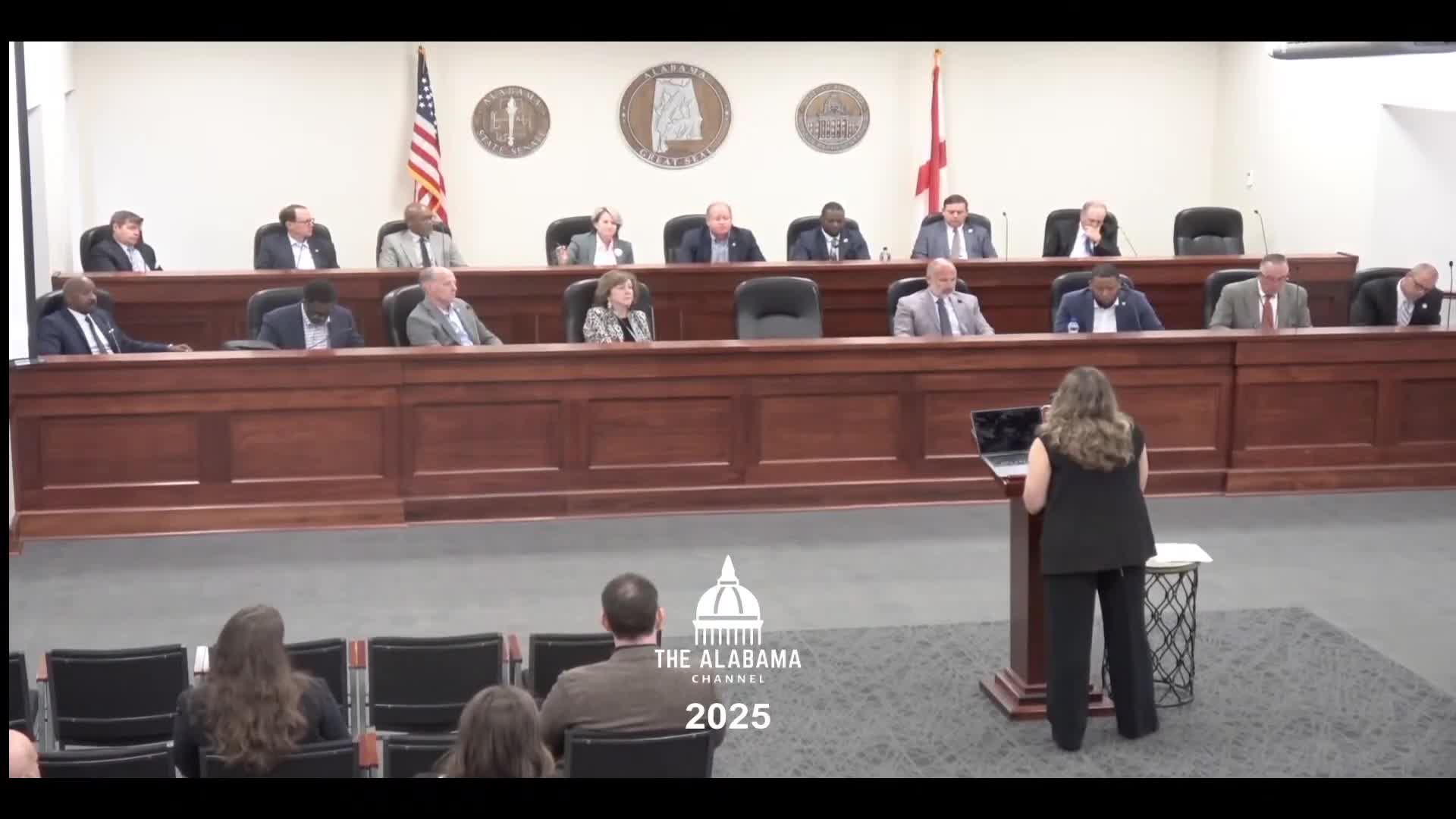Alabama Employment Group Enhances Opportunities for Justice Involved Individuals
September 17, 2025 | Joint Interim Committees, Alabama Legislative Sessions, Alabama
This article was created by AI summarizing key points discussed. AI makes mistakes, so for full details and context, please refer to the video of the full meeting. Please report any errors so we can fix them. Report an error »

In a recent meeting of the Alabama Joint Reentry Commission, members gathered to discuss vital initiatives aimed at improving economic mobility for individuals with justice involvement. The atmosphere was charged with a sense of purpose as they explored ways to bridge gaps between state agencies and streamline access to education, training, and employment opportunities.
Jonathan, a key participant, emphasized the importance of creating a cohesive approach to help individuals transition successfully into the workforce. He highlighted the Ingram State program, which offers education and licensure in a single, comprehensive package. This initiative aims to eliminate the frustration many face when they invest time and money into training, only to discover that their criminal records prevent them from entering certain professions.
The commission is also tackling the stigma surrounding the hiring of justice-involved individuals. Jonathan pointed out that many employers harbor concerns about insurance liabilities and the types of jobs available to these individuals. To address this, the commission is working to foster a more supportive environment for employers, encouraging them to consider hiring those with criminal backgrounds.
A significant development from the meeting was the introduction of a new question on job fair registration forms: “Are you hiring justice-involved individuals?” This simple yet impactful change aims to gather data on employer willingness to hire from this demographic, thereby creating a clearer picture of the job market for those reentering society.
The commission members expressed gratitude for the collaboration between legislators and the private sector, which has led to the dismantling of many occupational licensure barriers. This progress is crucial, especially in a state with a 57% labor participation rate, where employers are eager for workers. The partnership between the commission and two-year colleges is also pivotal, as it ensures that individuals receive the necessary training to meet workforce demands.
As the meeting concluded, there was a shared sense of optimism. The commission is not only working to inform individuals about available services but also sending a powerful message: while barriers exist, there are also pathways to success. The commitment to reducing recidivism through employment opportunities is a promising step forward for Alabama's justice-involved population, signaling a brighter future for many.
Jonathan, a key participant, emphasized the importance of creating a cohesive approach to help individuals transition successfully into the workforce. He highlighted the Ingram State program, which offers education and licensure in a single, comprehensive package. This initiative aims to eliminate the frustration many face when they invest time and money into training, only to discover that their criminal records prevent them from entering certain professions.
The commission is also tackling the stigma surrounding the hiring of justice-involved individuals. Jonathan pointed out that many employers harbor concerns about insurance liabilities and the types of jobs available to these individuals. To address this, the commission is working to foster a more supportive environment for employers, encouraging them to consider hiring those with criminal backgrounds.
A significant development from the meeting was the introduction of a new question on job fair registration forms: “Are you hiring justice-involved individuals?” This simple yet impactful change aims to gather data on employer willingness to hire from this demographic, thereby creating a clearer picture of the job market for those reentering society.
The commission members expressed gratitude for the collaboration between legislators and the private sector, which has led to the dismantling of many occupational licensure barriers. This progress is crucial, especially in a state with a 57% labor participation rate, where employers are eager for workers. The partnership between the commission and two-year colleges is also pivotal, as it ensures that individuals receive the necessary training to meet workforce demands.
As the meeting concluded, there was a shared sense of optimism. The commission is not only working to inform individuals about available services but also sending a powerful message: while barriers exist, there are also pathways to success. The commitment to reducing recidivism through employment opportunities is a promising step forward for Alabama's justice-involved population, signaling a brighter future for many.
View full meeting
This article is based on a recent meeting—watch the full video and explore the complete transcript for deeper insights into the discussion.
View full meeting
